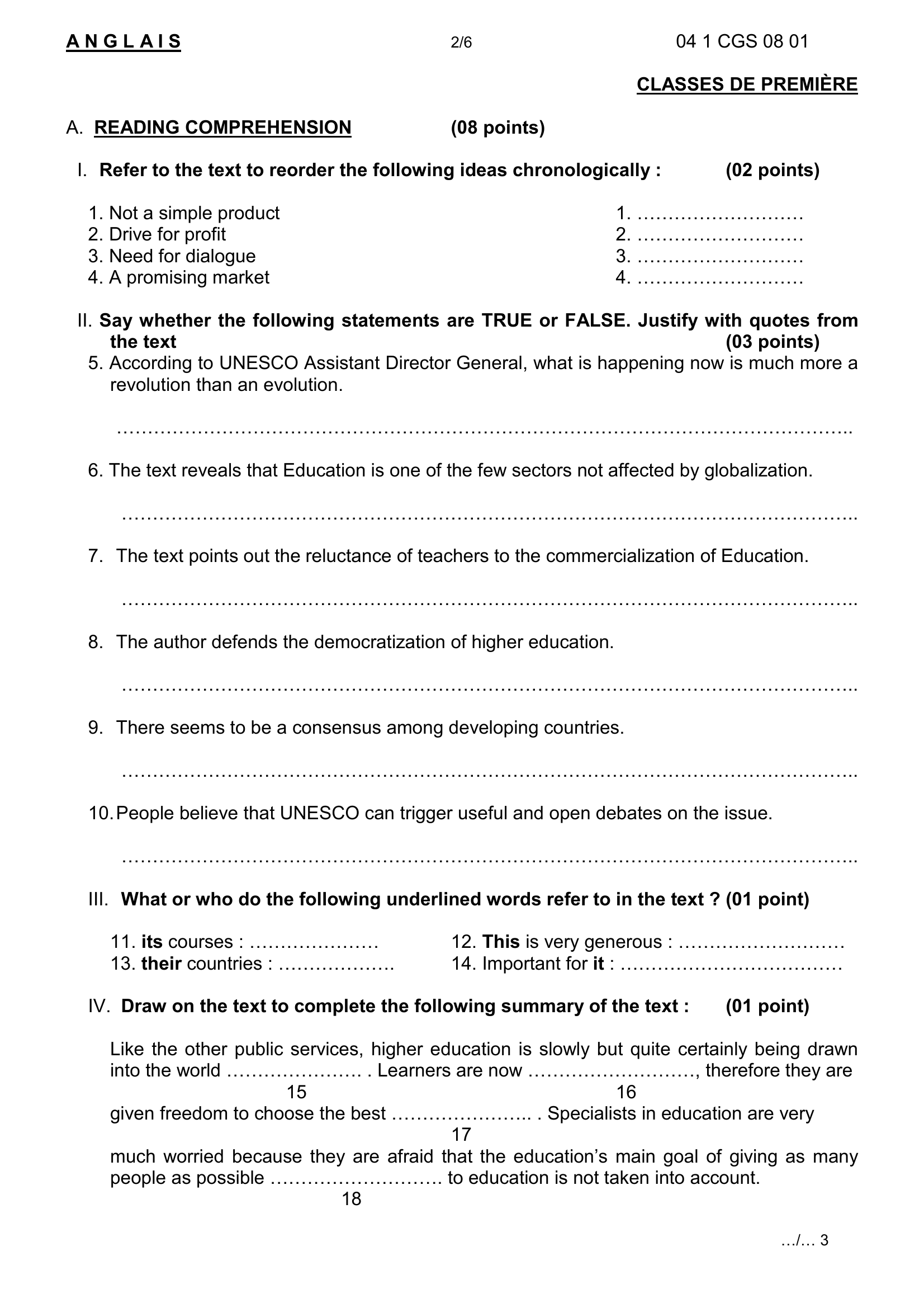menon ou la vertu
Publié le 16/11/2012

Extrait du document
«
A N G L A I S 2/6 04 1 CGS 08 01
CLASSES DE PREMIÈRE
A.
READING COMPREHENSION
(08 points)
I.
Refer to the text to reorder the following ideas ch ronologically : (02 points)
1.
Not a simple product 1.
2.
Drive for profit 2.
3.
Need for dialogue 3.
4.
A promising market 4.
II.
Say whether the following statements are TRUE or FA LSE.
Justify with quotes from
the text (03 points)
5.
According to UNESCO Assistant Director General, what is happening now is much more a
revolution than an evolution.
..
6.
The text reveals that Education is one of the fe w sectors not affected by globalization.
..
7.
The text points out the reluctance of teachers t o the commercialization of Education.
..
8.
The author defends the democratization of higher education.
..
9.
There seems to be a consensus among developing c ountries.
..
10.
People believe that UNESCO can trigger useful a nd open debates on the issue.
..
III.
What or who do the following underlined words refer to in the text ? (01 point)
11.
its courses :
12.
This is very generous :
13.
their countries :
.
14.
Important for it :
IV.
Draw on the text to complete the following summary of the text : (01 point)
Like the other public services, higher education is slowly but quite certainly being drawn
into the world
.
.
Learners are now
, therefore they are
15 16
given freedom to choose the best
..
.
Specia lists in education are very
17
much worried because they are afraid that the educa tions main goal of giving as many
people as possible
.
to education is not t aken into account.
18
/
3.
»
↓↓↓ APERÇU DU DOCUMENT ↓↓↓
Liens utiles
- L'argent est plus vil que l'or, et l'or que la vertu
- vertu et Montaigne texte
- Mémoire sur la vertu
- Microcosme et Délie, objet de plus haute vertu
- texte de machiavel sur la fortune et la vertu




